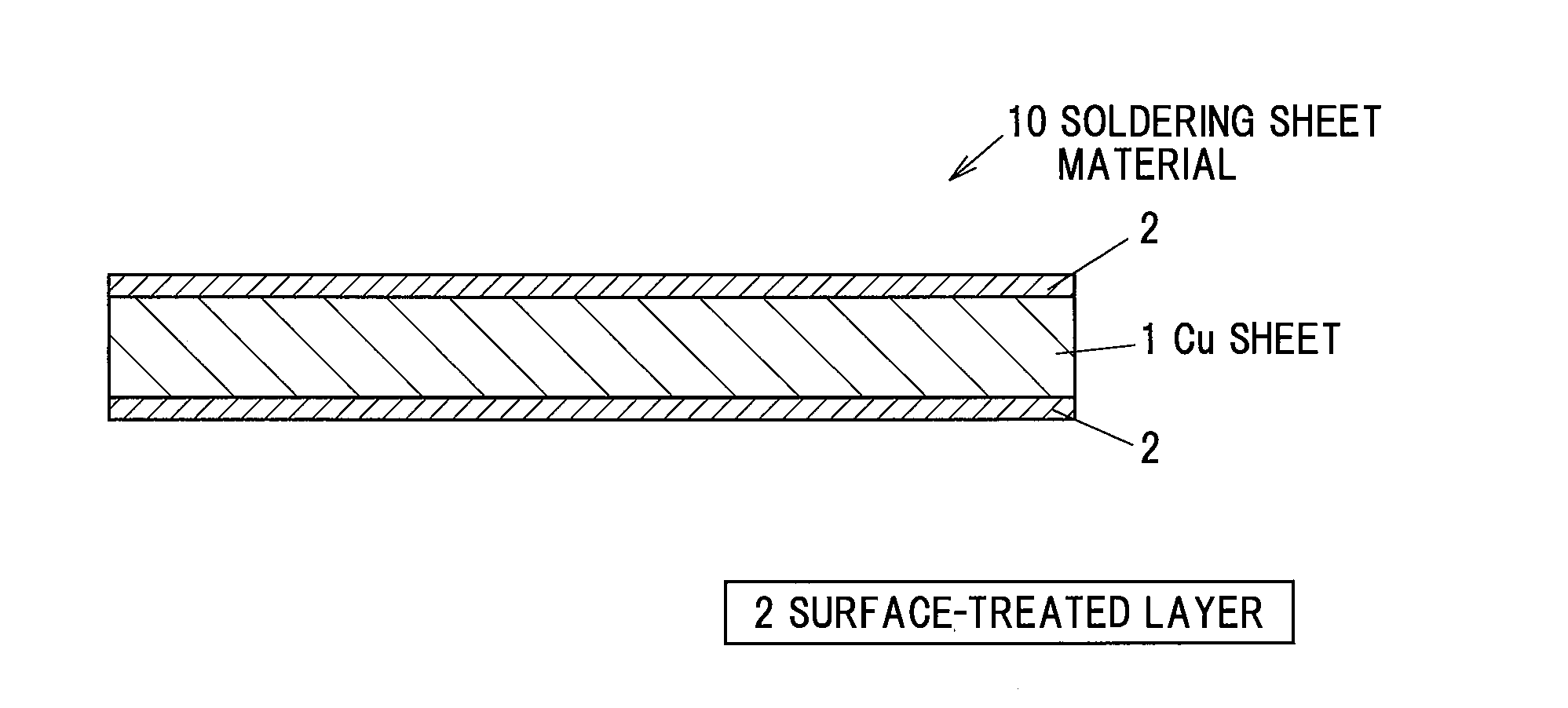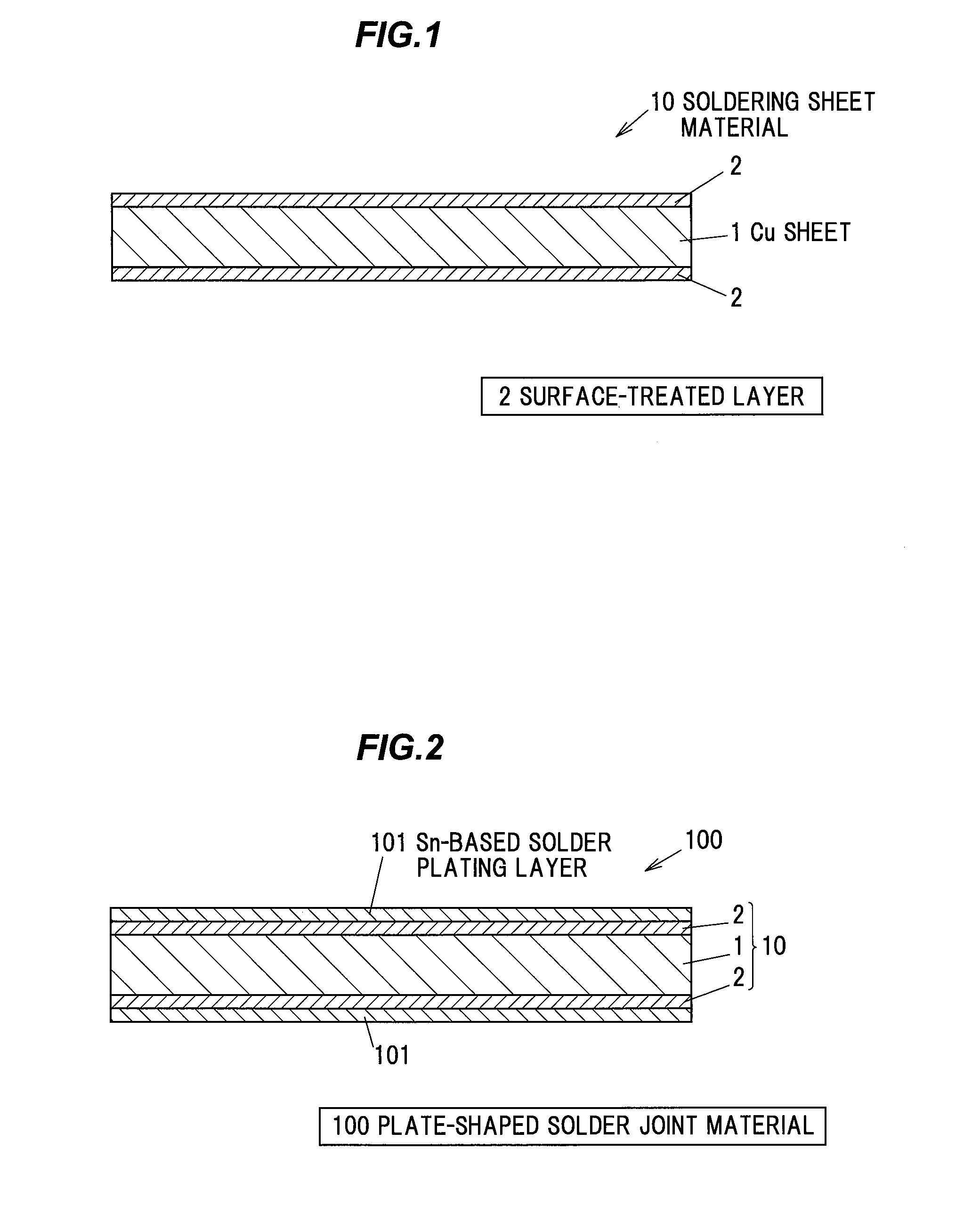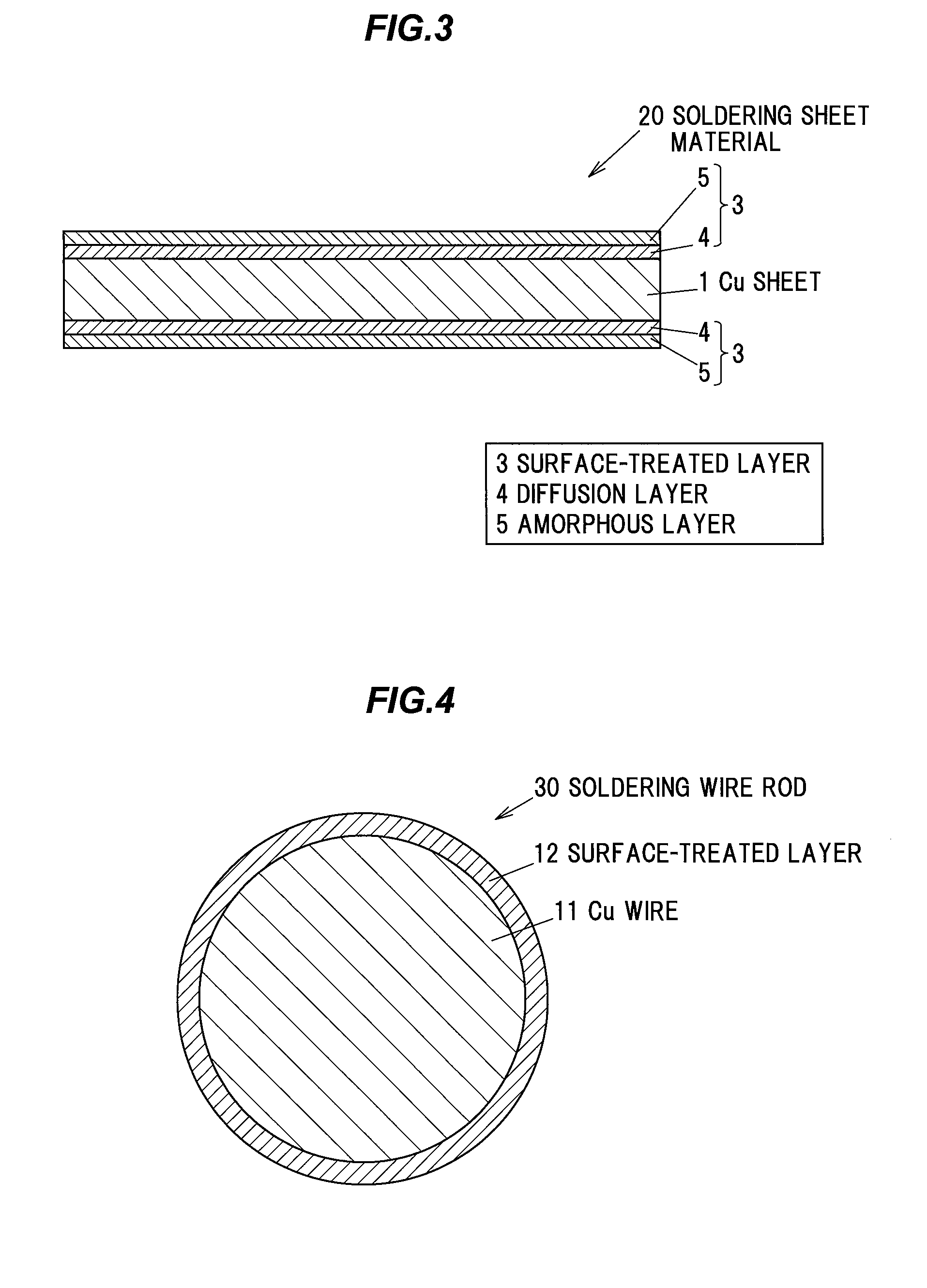Solder joint material and method of manufacturing the same, soldering member and solar cell module
a technology of solder joint and soldering member, which is applied in the direction of manufacturing tools, soldering apparatus, superimposed coating process, etc., can solve the problems of increasing the melting point of solder, reducing the bondability, and reducing the bondability, so as to achieve excellent solder bondability and joint reliability.
- Summary
- Abstract
- Description
- Claims
- Application Information
AI Technical Summary
Benefits of technology
Problems solved by technology
Method used
Image
Examples
first embodiment
[0048]A solder joint material in the first embodiment of the invention has a plate-like shape in which the surface-treated layer and the Sn-based solder plating layer are sequentially provided on each of a pair of opposing sides of the Cu-based metal sheet which has a rectangular cross section. The layers here are provided on both sides of the Cu-based metal sheet but it is not limited thereto. The surface-treated layer and the Sn-based solder plating layer may be sequentially provided on only one side of the Cu-based metal sheet.
[0049]FIG. 1 is a schematic cross sectional view showing a soldering member in the first embodiment of the invention and FIG. 2 is a schematic cross sectional view showing a solder joint material in the first embodiment of the invention. FIG. 3 is a schematic cross sectional view showing a modification of the soldering member in the first embodiment of the invention.
[0050]A soldering sheet material (soldering member) 10 shown in FIG. 1 is provided with a Cu...
second embodiment
[0070]A solder joint material in the second embodiment of the invention has a wire-like shape in which the surface-treated layer covers an outer periphery of the Cu-based metal material having a circular cross section and the Sn-based solder plating layer covers an outer periphery of the surface-treated layer.
[0071]FIG. 4 is a schematic cross sectional view showing a soldering member in the second embodiment of the invention and FIG. 5 is a schematic cross sectional view showing a solder joint material in the second embodiment of the invention. FIG. 6 is a schematic cross sectional view showing a modification of the soldering member in the second embodiment of the invention.
[0072]A soldering wire rod (soldering member) 30 shown in FIG. 4 is provided with a columnar Cu-based metal wire 11 (hereinafter, sometimes simply referred as “Cu wire”) having a circular cross section and a surface-treated layer 12 covering the outer periphery of the Cu wire 11. A wire-shaped solder joint materi...
example 1
[0098]In Example 1, a 0.5 mm-thick flat sheet of TPC was prepared, a 0.008 μm-thick Zn layer was then formed on a surface of the flat sheet by electrolytic plating and heat treatment was subsequently performed in the ambient air at a temperature of 100° C. for 5 minutes, thereby obtaining a sample. Based on Auger analysis performed on the obtained sample from the surface in a depth direction, it was confirmed that a 0.01 μm-thick surface-treated layer composed of zinc (Zn), oxygen (O) and copper (Cu) was formed.
PUM
| Property | Measurement | Unit |
|---|---|---|
| thickness | aaaaa | aaaaa |
| thickness | aaaaa | aaaaa |
| temperature | aaaaa | aaaaa |
Abstract
Description
Claims
Application Information
 Login to View More
Login to View More - R&D
- Intellectual Property
- Life Sciences
- Materials
- Tech Scout
- Unparalleled Data Quality
- Higher Quality Content
- 60% Fewer Hallucinations
Browse by: Latest US Patents, China's latest patents, Technical Efficacy Thesaurus, Application Domain, Technology Topic, Popular Technical Reports.
© 2025 PatSnap. All rights reserved.Legal|Privacy policy|Modern Slavery Act Transparency Statement|Sitemap|About US| Contact US: help@patsnap.com



